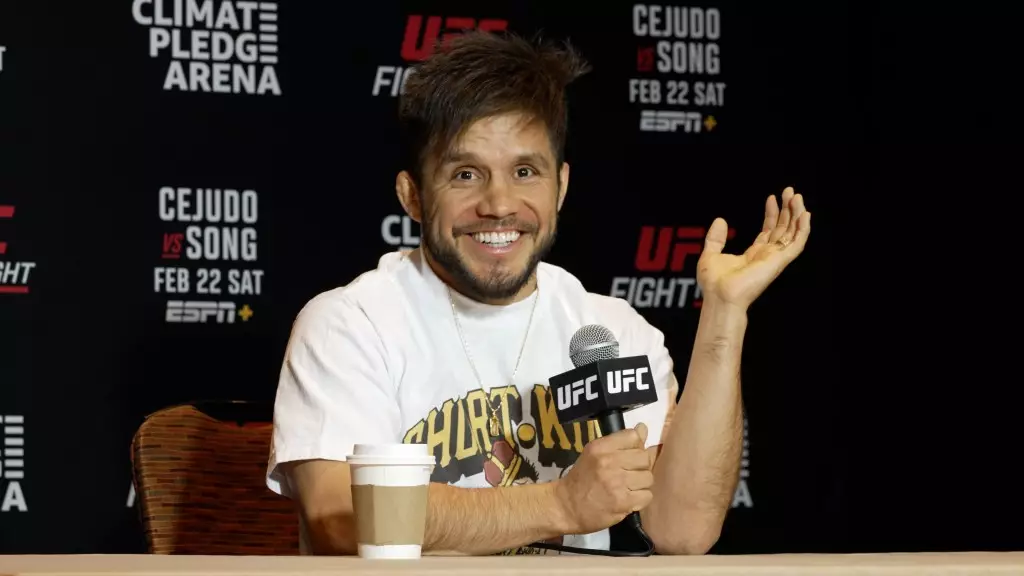This Saturday, Henry Cejudo will make his much-anticipated return to the octagon, stepping into a bantamweight bout against Song Yadong at UFC Fight Night 252 in Seattle. Fans and analysts are keen on watching how Cejudo, a fighter known for his tactical prowess and decorated accolades in the UFC, adjusts after a hiatus from professional fighting. Prior to his retirement in May 2020, Cejudo held the prestigious titles in both the flyweight and bantamweight divisions, cementing his status as one of the sport’s most versatile athletes.
Cejudo, who boasts an impressive record of 16 wins against 4 losses, had made headlines in the past for revitalizing the flyweight division just before his departure. His achievements and charisma are factors that the UFC continues to leverage to attract viewers. Speaking at a recent media day, Cejudo hinted that a return to the flyweight division is not completely out of the question, particularly if he secures a victory against Yadong.
Historically, the flyweight class has often been regarded as lacking the kind of excitement seen in other divisions. Cejudo himself pointed out this sentiment during his media interactions, suggesting that the division is currently devoid of compelling storylines. He criticized the situation, indicating that the creative energy surrounding fighters in this weight class feels “dry.” He stated, “I think there’s too many dry people at that weight division,” emphasizing the need for engaging narratives that could entice fans and boost the division’s marketability.
Cejudo’s impact on the flyweight division is undeniably profound—his championship run not only salvaged the weight class but also ignited interests that would have otherwise dissipated. This makes his potential return a pivotal point for the future of that division. By engaging in compelling fights against top contenders, Cejudo could reestablish vibrancy in flyweight competition. His perspective on the current landscape suggests that without his involvement, the division might struggle to gain traction.
Interestingly, Cejudo’s remarks did not shy away from acknowledging the current flyweight champion, Alexandre Pantoja, with whom he shares a respectful connection. Their interaction at last New Year’s demonstrated a friendship that straddles competitive lines. However, Cejudo’s assertion that Pantoja—and by extension, the division—lacks the ability to generate hype highlights a serious issue: the need for engaging rivalries and narratives to captivate audiences.
Fighters with backstories, rivalries, or unfulfilled narratives tend to draw fan interest. Cejudo’s cryptic hints at transforming the flyweight division after he grapples with Yadong suggest there could be twists and turns ahead, possibly setting the stage for a volatile rivalry or even rematches against other notable fighters in the division.
Cejudo’s upcoming bout is not just another fight; it is a potential turning point for both his career and the divisions he graces. With considerable skill and market appeal, his active participation could either bolster or reshape the current dynamics of UFC divisions. As fans tune in to watch him square off against Song Yadong, the question remains not merely of victory or defeat but rather the broader implications his performance could have on the flyweight landscape. The UFC, and the fans, surely await the return of “Triple C” with bated breath, curious to see how he might reignite excitement in the divisions he once revitalized.

